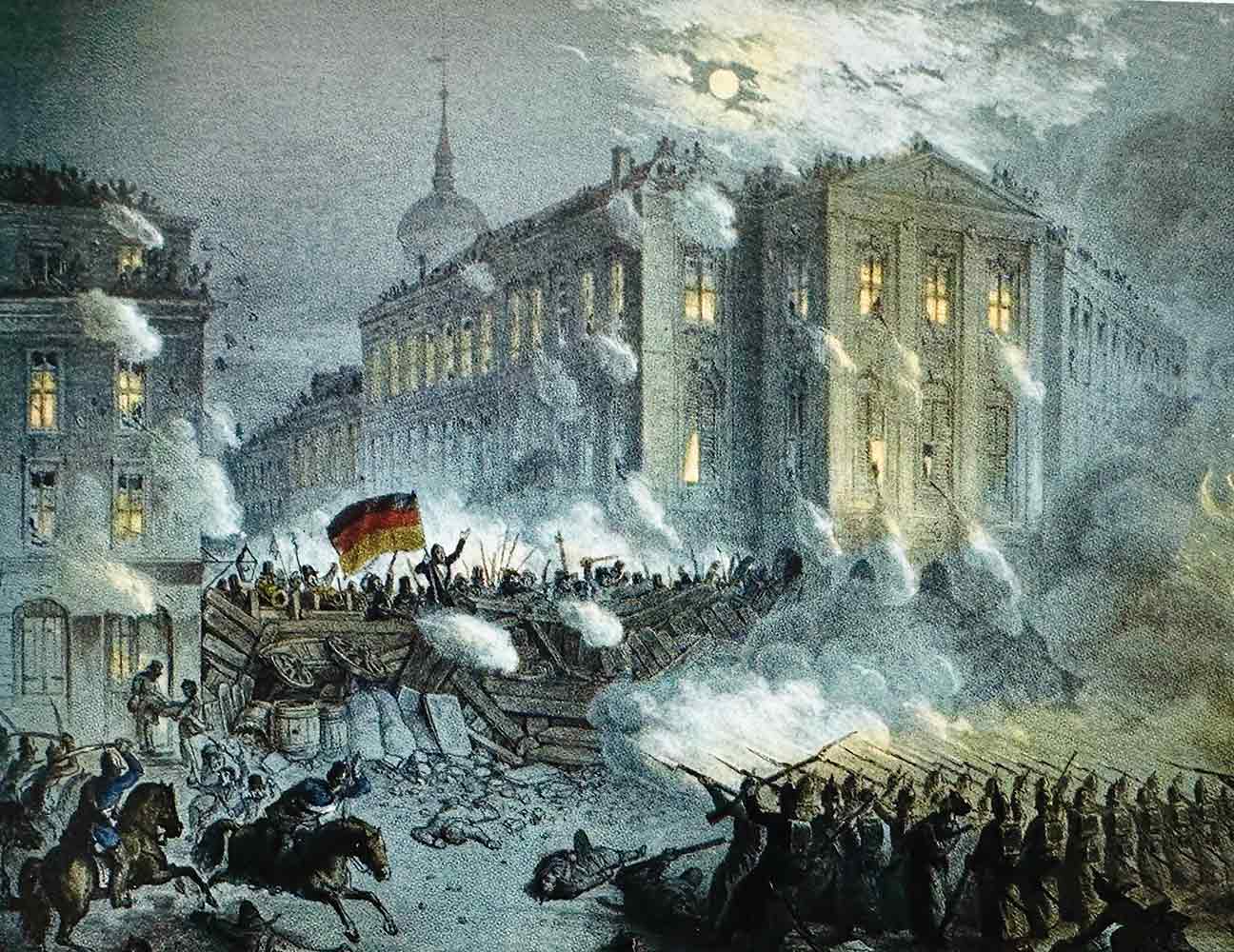From The Nation:
The very first revolution of 1848 testified to that faith. In Palermo, Sicily, printed notices appeared at the start of the year announcing that an uprising—and an era of “universal regeneration”—would begin on January 12. As Clark notes, it might have seemed a silly idea for the conspirators to announce their plans ahead of time—but there was no conspiracy. The author of the notices, a veteran of radical politics named Francesco Bagnasco, thought “the announcement of a revolt would suffice to bring one about,” and he was right. Long-standing resentment of the king of Naples’s heavy-handed rule, exacerbated by severe economic inequality, led crowds to pour into the streets on the appointed day to fulfill—if only for a short time—the dream of Sicilian independence.Share
Revolution soon spread to mainland Europe, driven by social conflict. Europeans were not, in the aggregate, poorer than they had been in the past, but the economic disruptions of the industrial revolution had created a newly mobile labor force living a starkly precarious existence, especially in the cities. Nor were reform-minded Europeans as ready as they once had been to accept social misery as inevitable. As emerging socialist movements insisted, impoverishment was a human phenomenon, and human action—political action—could relieve it. In region after region, precarity and the hope for a more secure life fueled popular support for political movements struggling against corrupt, despotic, and foreign rulers (the working classes generally did not start the revolutions, but revolutions could not succeed without them). And in region after region, the news of uprisings elsewhere fell on the dry timber of troubled societies like a shower of sparks.
In February, the French overthrew King Louis-Philippe and proclaimed the Second Republic (Napoleon Bonaparte had overthrown the first one 49 years earlier). The next month, revolution spread to the German states, with many rulers, notably in Austria and Prussia, compelled to promise liberal reforms. They granted constitutions and guaranteed rights. Delegates from the German territories assembled in Frankfurt to start planning for German unification. And from there, uprisings spread across Central Europe and Italy. National minorities throughout the Austrian, Ottoman, and Russian empires called for autonomy or independence. The 1848 revolutions extended as far east as the Balkans and the Ionian Islands and led rulers in many places to make anxious, preemptive concessions to the reformers.
The 1848 revolutions also had consequences beyond Europe, notably in France’s overseas colonies, where enslaved people seized freedom for themselves in anticipation of legal emancipation—which the Second Republic duly enacted. Clark gives far more attention to 1848’s global ramifications than earlier historians, and also to the role of women—although feminists who hoped the revolutions would bring women expanded rights were everywhere met with bitter disappointment. France’s Jeanne Deroin, who called for female suffrage, tried to run for a seat in Parliament herself, and campaigned for the creation of workers’ cooperatives, ended up in prison during a wave of postrevolutionary repression.
Surprisingly, Clark writes, self-conscious revolutionaries like Deroin “tended to play a very marginal role in the events of 1848.” Instead, most often, uncoordinated spontaneous uprisings led to a sudden and unexpected collapse of authority, followed by frantic efforts to cobble together a new political order. The pattern repeated itself in place after place, with a virtually identical vocabulary. “The same words rang out everywhere: constitution, liberty, freedom of the press, association and assembly, civil (or national) guard, franchise reform.” Clark also points to a similar “euphoria” that gripped revolutionary crowds throughout Europe, especially in the cities. He writes of “the sense of immersion in a collective self, the presence of an emotion so intense that it is almost painful.”(Read more.)


















No comments:
Post a Comment